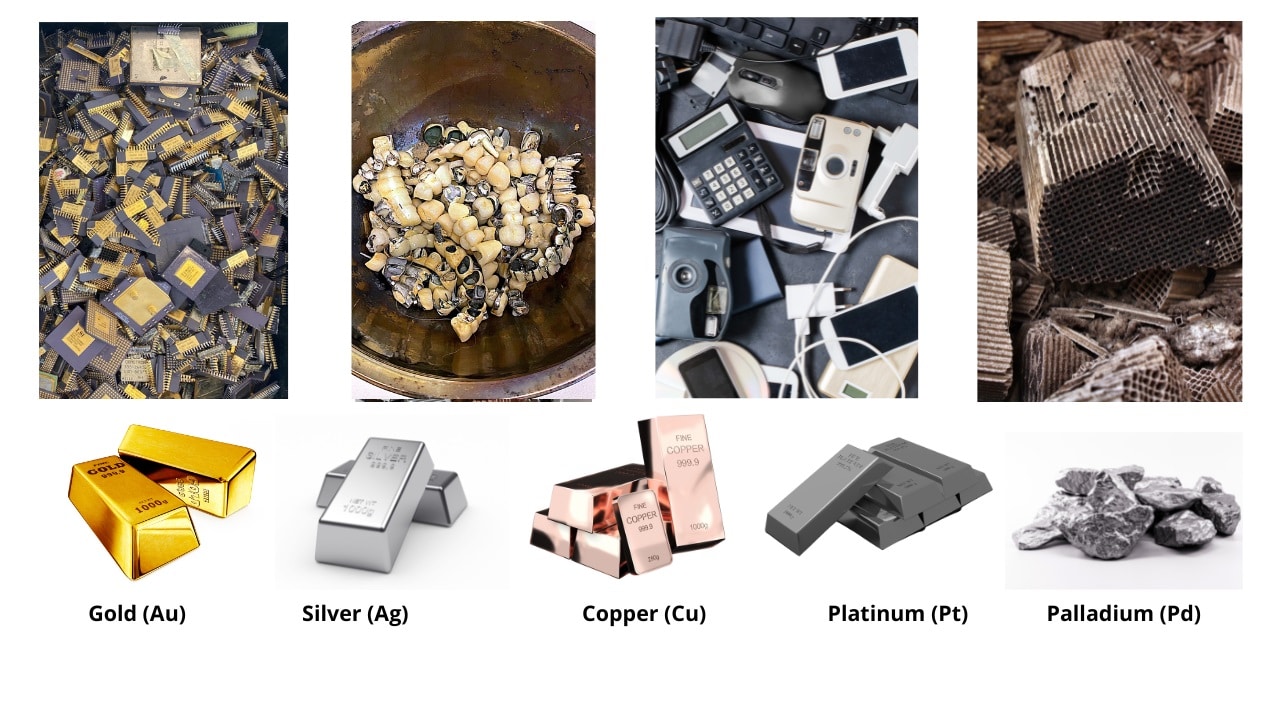
Cost Components for Recycling Waste Containing Precious Metals (gold, palladium, platinum, rhodium and silver)
Background
Calculating the true cost of precious metal recycling can be misleading, as it includes a number of variable components making comparison between different recyclers more difficult.
In this article, I will try to explain these cost components in order to present the full picture for those interested in selling / recycling waste containing precious metals.
Before examining the costs, I suggest following a few of rules of thumb –
- Prepare the waste in a way that maximizes the certainty of its contents, i.e., drying / burning / casting, in order to obtain a homogeneous material on which a preliminary test can be performed.
- Ensure the waste does not contain hazardous or toxic substances (such as mercury, arsenic, lead, bismuth, etc.), for which the recycler may impose a fine or even refuse to treat the waste
- Work with a reliable and reputable recycler (certificate of receipt, certificate of weights, orderly results report, fast payment, etc.).
- Find out whether it is possible to designate a fixed price (fixing) for the precious metals and at what stage of the transaction.
- A price that seems too attractive may be a red flag.
- Recycling prices are affected by the types of waste (electronics, catalytic converters, ingots, etc.) as well as by the metal concentrations of the waste itself.
It is vital to compare prices within the same parameters. - Whether the material is defined as DG and requires the approval of the Ministry of Environmental Protection / EPA, electronic waste / WEEE or any other waste – it is recommended to check local regulation and guidelines.
Approximation of recycling cost
As mentioned, recycling costs vary according to the type of waste and the concentrations of the metals.
Here are the cost components to consider:
|
1. |
Lot Charge |
Minimum charge for handling a lot |
$150-500 |
|
2. |
Treatment Fee |
Charge per Kg for treatment or processing (burning / milling / casting) |
5-25 $/kg |
|
3. |
Refining Fee |
on net metal return |
0.2 $/g Au |
|
4. |
Metal Return |
The return is always a few percent less than 100% |
|
|
5. |
Metal Price |
LME price (AM or PM) less a certain premium (in gold, almost zero, in rhodium and palladium slightly more) |
|
|
6. |
Interest Rate |
Usually, the metal is available after 60-90 days from getting the results. If you want immediate payment, then you have to pay an interest. |
|
|
7. |
Lease Price |
Immediate credit must include “Fixing” of metal price. “Lease Price” is the cost of fixing the metal price. |
|
|
8. |
Shipping & Insurance |
The insurance price range is between 0.2%-0.3% |
|
|
9. |
Fines |
Problematic scraps which contain hazardous materials may get fined, depending on the percentage of it in the scrap. |
In conclusion
Preparing the scraps in a homogenous manner / prior analysis of the scrap content / working with a reliable and reputable recycler – will all maximize the return and level of certainty.
–
Ami Gur
AG Metals Ltd.
